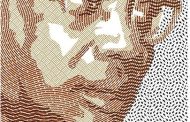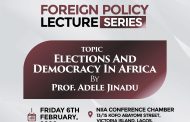Freetown, one of Africa’s most symbolic capital cities, is 230 years old and it is not missing using the anniversary as an opportunity to flaunt its survival in history, with particular reference to cultural diversity. Powered by the Freetown City Council, (FCC) and led by the mayor, simply introduced to Intervention as Yvonne Aki-Sawyerr, the celebration featured a cultural parade showcasing diversity in its most comprehensive sense.

Dr. Yusuf Bangura, the author
It is, however, not clear how the word ‘tribe’ stole itself into the process as opposed to the ethnic groups which actually defined the diversity under reference. That is what a keen observer and cultural stakeholder in the fiesta – Dr. Yusuf Bangura, is questioning in the piece below:
It was a lovely parade, displaying Sierra Leone’s cultural diversity. I’m struck, though, by the instinctive use of the word ‘tribe’ by officials to describe our ethnic or cultural groups.
At least the Freetown City Council may have realised its error in using this term in its publicised programme for the event in which the parade item was described as ‘Parade by Freetown’s tribes’. The FCC document that accompanies this video now talks about Freetown’s ethnic groups.
Although the definition of tribe is contested in the literature on tribes, nations and nationalities, the dominant view, embraced by colonial authorities who pushed the concept in Africa, refers to a tribe as a small group of people who share a common language, history, culture and occupations and lack high levels of stratification or class divisions. A notion of backwardness or inferiority underpins the term.

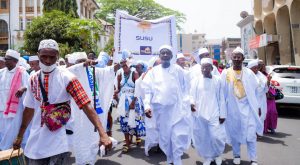 I wonder if any serious person will believe that Freetown’s cultural or ethnic groups today are communal or flat and lack social hierarchies or class divisions.
I wonder if any serious person will believe that Freetown’s cultural or ethnic groups today are communal or flat and lack social hierarchies or class divisions.
One of the problems of using the word tribe to describe Africa’s cultural or ethnic groups is that even if these groups become highly complex and differentiated, they will still be referred to as tribes. Only Africa, the pacific islands and indigenous groups in Australia and the US (which are now called First Nations!) have that problem.
It is, indeed, truly amazing that even the highly stratified Yoruba and Hausa with more than 50 million people are still referred to as tribes!
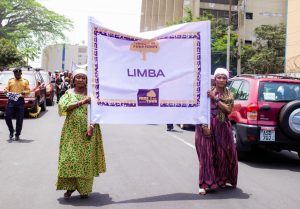
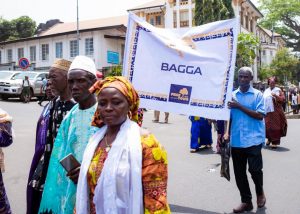 I once challenged a British anthropologist who teaches at the LSE and works on Uganda on why he uses the word tribe in his writings. He responded that it is how Ugandans describe themselves! I told him that it was the British, not Ugandans, who invented the word and popularised it in Uganda and other parts of Africa as part of the colonial project of belittling African culture and subjugating its people; that most of the Africans who use the word don’t know its meaning and that the job of the scholar is to correct, not reinforce, prejudice. I concluded that since he and other Western anthropologists knew the meaning of the word, they were complicit in the racist tradition of belittling Africans by continuing to use the term. He was surprised by my position because I don’t think he had ever been confronted on his use of the term.
I once challenged a British anthropologist who teaches at the LSE and works on Uganda on why he uses the word tribe in his writings. He responded that it is how Ugandans describe themselves! I told him that it was the British, not Ugandans, who invented the word and popularised it in Uganda and other parts of Africa as part of the colonial project of belittling African culture and subjugating its people; that most of the Africans who use the word don’t know its meaning and that the job of the scholar is to correct, not reinforce, prejudice. I concluded that since he and other Western anthropologists knew the meaning of the word, they were complicit in the racist tradition of belittling Africans by continuing to use the term. He was surprised by my position because I don’t think he had ever been confronted on his use of the term.
Interestingly, even when I was growing up, as my history scholar friend, Ibrahim Abdullah, has pointed out, if someone wanted to know your identity in Krio (Sierra Leone’s pidgin/creole lingua franca), the question was: ‘yu nar oos nashon’? It translates to “you are what nation?” He believes that the word tribe gained ascendancy in Sierra Leone in the 1970s.
The word tribe doesn’t exist in our pre-colonial African languages. If someone wants to know your ethnic identity in Themneh, for instance, the question would be: ´mu-non, ko wuni-ar’? (literally—you, what person are you?).




